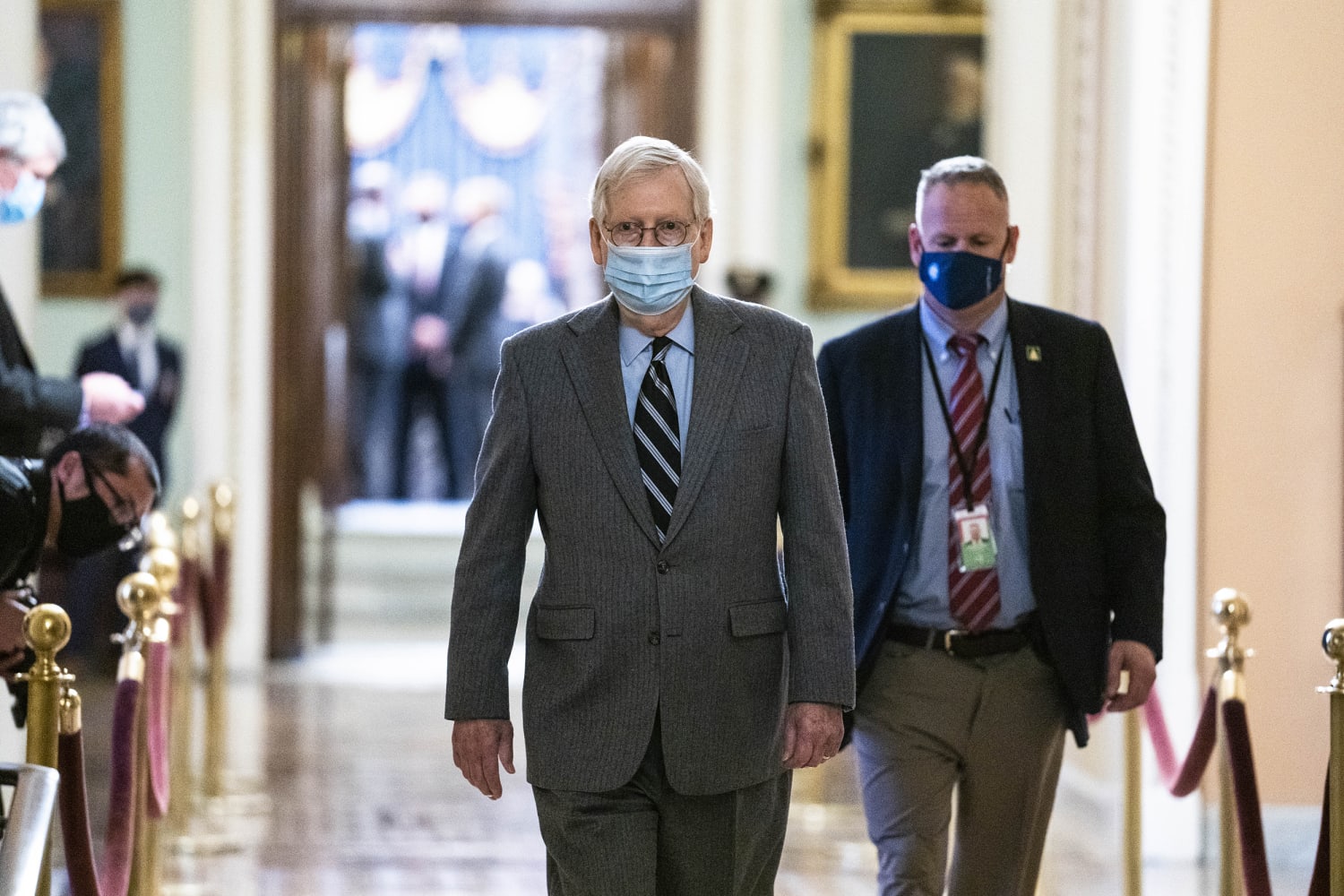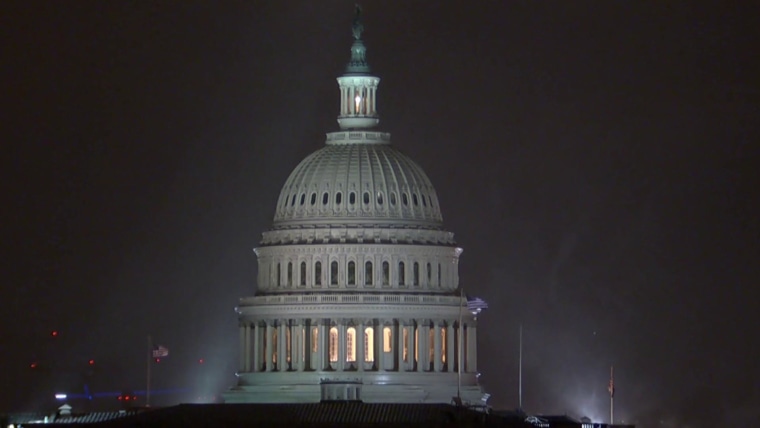WASHINGTON — Congressional leaders inched closer to sealing a coronavirus relief deal on Thursday, one day before a deadline to keep the government funded.
Senate Majority Leader Mitch McConnell, R-Ky., said Thursday that a deal between the two parties “appears to be close at hand” and that negotiators were “on the 1-yard line.”
House Speaker Nancy Pelosi, D-Calif., told reporters that negotiators “made some progress this morning” and continued to talk.
Their remarks followed frenzied talks among the top four congressional leaders this week to arrive at a deal to provide about $900 billion in coronavirus relief money for workers, families and businesses struggling in the pandemic — and to help distribute the vaccines.
Congress is short on time, and top lawmakers said a stopgap spending measure to avert a shutdown was likely, which would buy some extra days to hammer out a coronavirus aid package and pass both that and an omnibus spending bill together.
McConnell said it’s “highly likely” the Senate will work through the weekend and warned against either side pushing “controversial” policy add-ons that could scuttle an agreement.
Any stopgap funding bill should be “very, very short,” he said.
Senate Minority Leader Chuck Schumer, D-N.Y., said Congress is “putting the final touches on what would be the largest stimulus bill in the history of our country, with the exception of the CARES Act.”
Sources familiar with the talks said the package will include a new round of stimulus checks, likely about $600 for every adult who qualifies based on income; a federal unemployment insurance bonus of about $300 per week; more money for businesses struggling to pay rent and workers; vaccine distribution funds; and assistance for rent and food.
The package is not expected to include liability protections for employers, a top McConnell priority, or money for state and local aid, which Democrats had demanded. Dropping those two provisions helped pave the way for agreement.
One of the sticking points revolves around a Federal Emergency Management Agency disaster fund for states. Republicans have objected, citing what they say is its $90 billion cost. Democrats are pushing for it as an indirect way to get money to states and argue it will cost far less.
The other lingering issue involves the Treasury Department and Federal Reserve lending program — Sen. Pat Toomey, R-Pa., and other Republicans want to put guardrails around the program.
“We’re very close to agreement, but the details really matter,” Schumer said Thursday. “None of the remaining hurdles cannot be overcome,” he said. “We will not leave until we get the result.”
Senate Minority Whip Dick Durbin, D-Ill., said Thursday he’s “hopeful that we finalize a deal today.”
Julie Tsirkin contributed.
Source: | This article originally belongs to Nbcnews.com














